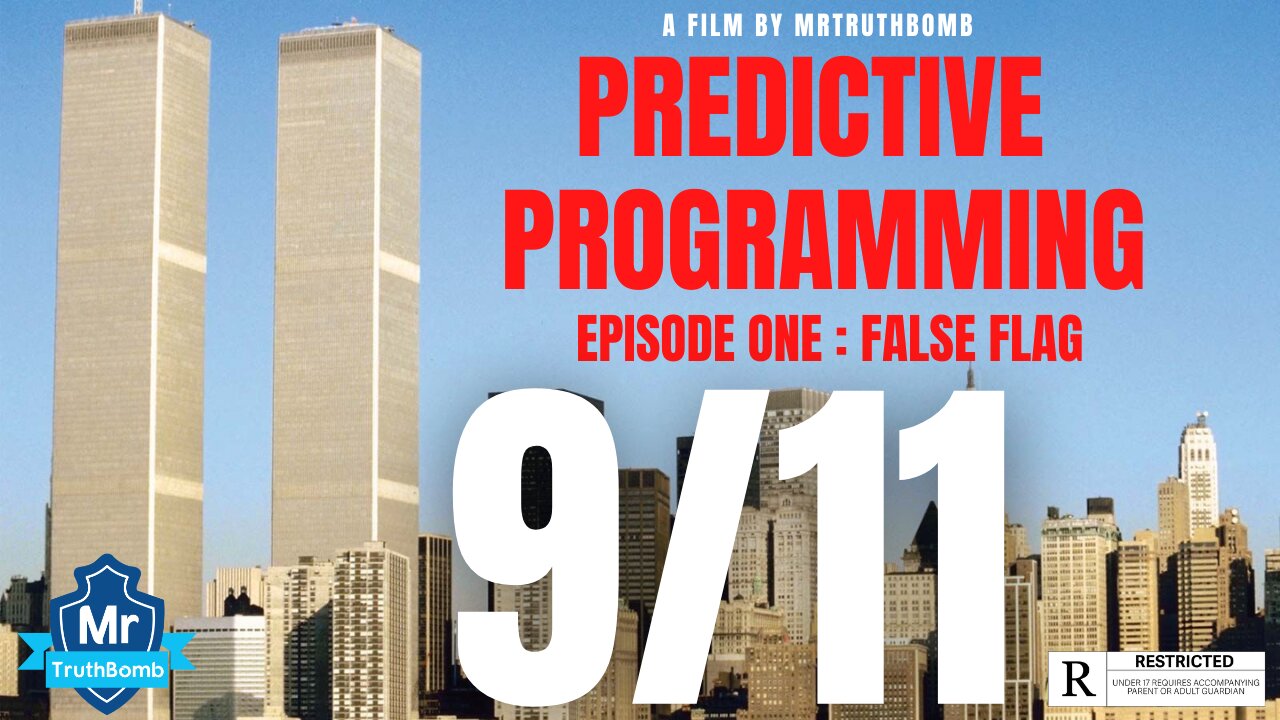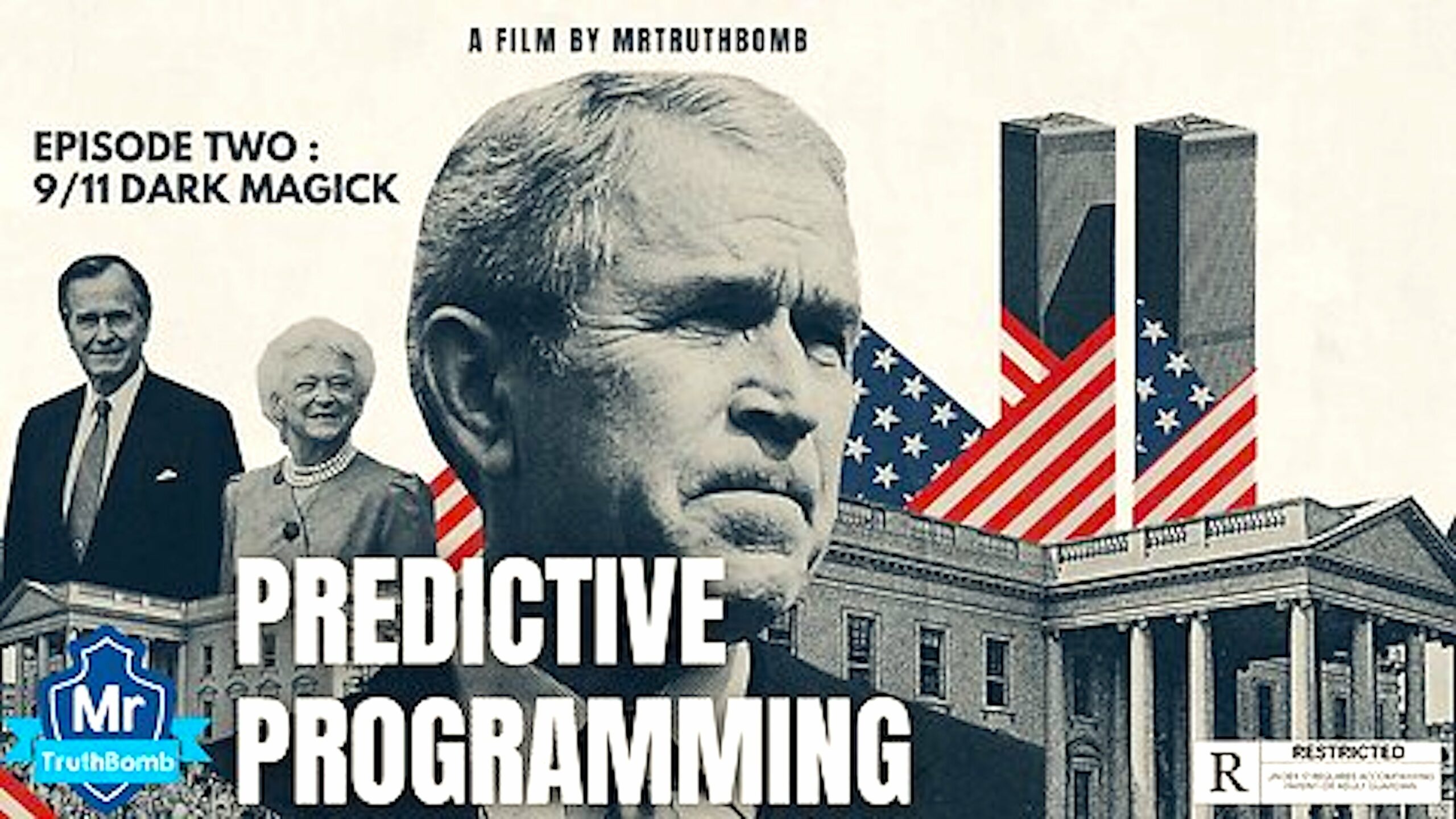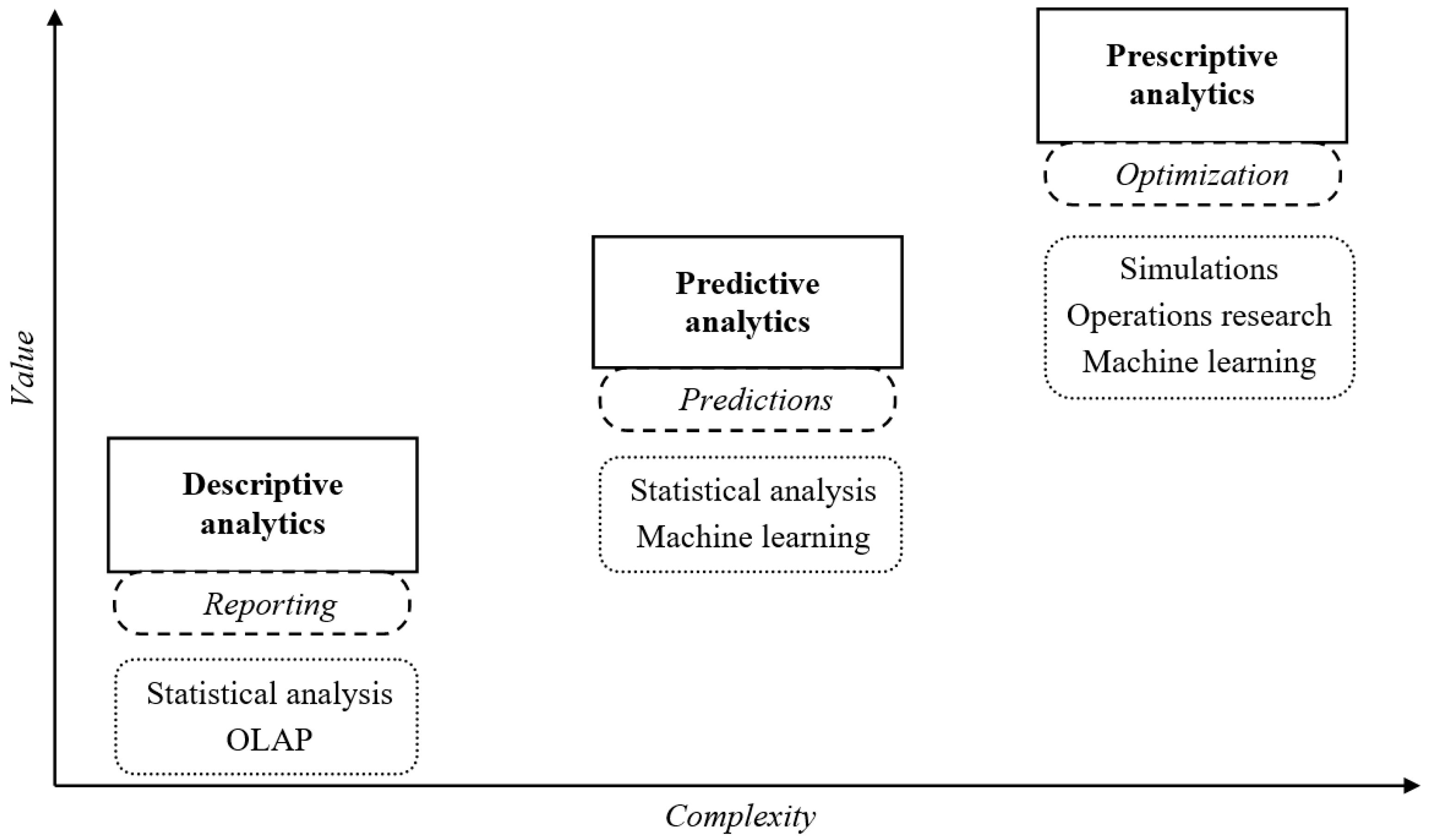Let’s dive right into it, folks. The term "911 predictive programming" has been buzzing around for years, sparking debates, theories, and endless speculation. It's like that one topic at the dinner table that everyone whispers about but never fully understands. So, what exactly is it? Simply put, 911 predictive programming refers to the idea that major events, like the tragic attacks on September 11, 2001, were hinted at or "programmed" into media, movies, and literature long before they actually happened. Crazy, right? But before we dive deeper, let’s set the stage. This isn’t just about random coincidences—it’s about patterns, connections, and the way information flows in our world.
Now, you might be thinking, "Is this just another conspiracy theory?" Well, hold your horses. While some people dismiss it outright, others see it as a way to understand how narratives are shaped and controlled. Predictive programming isn’t just about 911; it’s a concept that applies to many historical events. Think of it as a puzzle where pieces fit together in ways that seem almost too perfect to ignore. But don’t take my word for it. Let’s break it down piece by piece and see what’s really going on.
Before we go any further, let’s address the elephant in the room. Why does this topic matter? Because understanding 911 predictive programming can help us see how media and entertainment influence our perception of reality. It’s like that moment when you realize the movie you’re watching might not just be fiction—it could be a blueprint for something much bigger. So, buckle up, because we’re about to explore the rabbit hole of predictive programming and its connection to one of the most significant events in modern history.
Read also:Naughty Americans Exploring The Bold Side Of American Culture
What Is Predictive Programming Anyway?
Alright, let’s get down to business. Predictive programming is like a secret code hidden in plain sight. It’s the idea that certain events are subtly hinted at in media, long before they happen. Think of it as a way to prepare the public for something big, making it seem almost inevitable when it finally occurs. The concept isn’t new; it’s been around for decades, with examples cropping up in movies, TV shows, and even books.
For instance, have you ever watched a movie and thought, "Wow, that’s eerily similar to real life"? That’s predictive programming in action. It’s not just about random coincidences; it’s about planting seeds of thought in the collective unconscious. The goal? To normalize certain ideas or events so that when they happen, people don’t bat an eye. It’s like that slow drip of water that eventually wears away stone.
Examples of Predictive Programming in Pop Culture
Let’s look at some examples to make this clearer. Movies like "Superman: The Movie" (1978) and "The Tall Tower" (1979) both featured scenes where planes crash into skyscrapers. Sound familiar? These films were released years before the tragic events of 9/11, yet they depicted scenarios eerily similar to what happened. Coincidence? Or something more deliberate?
Then there’s the classic TV show "The Simpsons," which famously predicted the 9/11 attacks in an episode aired in 2001. In the episode, a building collapses in a way that mirrors the Twin Towers. Again, is this just a lucky guess, or is there more to the story? These examples show how predictive programming works—by planting ideas in our minds and making them seem normal over time.
911 Predictive Programming: A Closer Look
Now, let’s zoom in on the main event: 911 predictive programming. The attacks on September 11, 2001, were one of the most devastating events in recent history. But what if they weren’t entirely unexpected? What if the media had been dropping hints for years, preparing the public for what was to come?
Take a look at the timeline. Movies like "Wings of Fury" (1995) and "Executive Decision" (1996) both featured plots involving hijacked planes and terrorist attacks. Even the popular game "Microsoft Flight Simulator" had a scenario where players could fly a plane into the World Trade Center. These examples suggest that the idea of planes crashing into buildings wasn’t entirely new—it had been floating around in media for years.
Read also:How To Connect To Raspberry Pi From Anywhere A Beginners Guide For The Techsavvy
Was 9/11 Predicted or Just Coincidence?
This is where things get interesting. Was 9/11 really predicted, or are these examples just random coincidences? That’s the million-dollar question. Some argue that predictive programming is a real phenomenon, while others dismiss it as nothing more than pareidolia—the tendency to see patterns where none exist.
But here’s the thing: when you have so many examples pointing in the same direction, it’s hard to ignore the possibility. It’s like flipping a coin and getting heads ten times in a row. Sure, it could be a coincidence, but it’s also worth considering whether there’s something more at play.
The Psychology Behind Predictive Programming
Let’s talk about the psychology of it all. Predictive programming works because of how our brains process information. We’re wired to notice patterns and make connections, even when those connections don’t exist. This is why predictive programming can be so effective—it taps into our natural tendency to seek meaning in the world around us.
When we see the same idea repeated over and over in different forms of media, it starts to feel familiar. And when something familiar happens in real life, we’re less likely to question it. It’s like that song you hear on the radio every day—you might not even notice it anymore, but it’s still in your head.
How Predictive Programming Shapes Public Perception
The impact of predictive programming goes beyond just entertainment. It shapes how we perceive reality. When we’re exposed to certain ideas repeatedly, they become part of our mental landscape. This is why predictive programming can be so powerful—it doesn’t just inform us; it influences us.
Think about it: if you’ve seen dozens of movies and TV shows where planes crash into buildings, you’re more likely to accept that scenario when it happens in real life. It’s not that you’re being manipulated—it’s that your brain is doing what it’s designed to do: make sense of the world.
Who’s Behind Predictive Programming?
This is the big question, isn’t it? Who’s pulling the strings? Some people point to powerful organizations like the CIA or the Illuminati, while others argue that it’s simply a byproduct of how media works. The truth is probably somewhere in the middle.
Predictive programming doesn’t have to be a deliberate conspiracy to be effective. It can happen organically, as writers and producers draw inspiration from current events and trends. But that doesn’t mean there aren’t people out there who use it intentionally. After all, if you can shape public perception, you have a lot of power.
The Role of Media in Predictive Programming
Media plays a crucial role in predictive programming. It’s the vehicle through which ideas are transmitted to the masses. Movies, TV shows, books, and even video games all contribute to the narrative. And when that narrative aligns with real-world events, it creates a powerful feedback loop.
But here’s the kicker: media isn’t neutral. It’s influenced by a variety of factors, including politics, economics, and social trends. This means that what we see on screen isn’t always just entertainment—it’s often a reflection of the world we live in, for better or worse.
Is Predictive Programming Dangerous?
Now, let’s talk about the elephant in the room: Is predictive programming dangerous? Some argue that it is, because it can be used to manipulate public opinion and justify certain actions. Others say it’s harmless, just a natural part of how media works. So, who’s right?
The truth is, predictive programming can be both. On one hand, it’s a fascinating example of how ideas spread and evolve. On the other hand, it can be used to manipulate and control. It’s like fire—useful when controlled, but devastating when out of control.
How to Spot Predictive Programming in Media
So, how can you spot predictive programming in action? Pay attention to recurring themes and motifs. Look for patterns in the way certain ideas are presented. And most importantly, stay skeptical. Just because something seems familiar doesn’t mean it’s true.
Remember, the goal of predictive programming is to make you think a certain way. By staying aware and critical, you can avoid falling into its traps. It’s like that old saying: trust, but verify.
The Future of Predictive Programming
As we look to the future, it’s clear that predictive programming isn’t going away anytime soon. In fact, it’s likely to become even more prevalent as technology advances. With the rise of AI and data analytics, the ability to shape public perception is greater than ever.
But that doesn’t mean we’re powerless. By staying informed and critical, we can resist the influence of predictive programming. It’s all about balance—recognizing patterns without jumping to conclusions, and staying open-minded without being naive.
How Can We Resist Predictive Programming?
The key to resisting predictive programming is awareness. Educate yourself on how media works and how narratives are shaped. Stay curious, ask questions, and seek out diverse perspectives. And most importantly, trust your instincts. If something feels off, it probably is.
It’s also important to engage in critical thinking. Don’t just accept everything you see or hear at face value. Dig deeper, do your research, and form your own opinions. The more informed you are, the harder it is for anyone to manipulate you.
Conclusion: What Does It All Mean?
So, what does it all mean? Is 911 predictive programming a real phenomenon, or just a bunch of coincidences? The answer is probably somewhere in between. What’s clear is that predictive programming exists, and it plays a significant role in shaping our perception of reality.
As we’ve explored, predictive programming isn’t just about 9/11. It’s a broader concept that applies to many aspects of our lives. By understanding how it works, we can become more aware of the narratives that shape our world. And who knows? Maybe by recognizing these patterns, we can even change the story ourselves.
So, what’s next? It’s up to you. Keep asking questions, keep seeking truth, and keep pushing for a better understanding of the world around you. Because in the end, the truth is out there—it’s just waiting for someone brave enough to find it.
Table of Contents
- What Is Predictive Programming Anyway?
- Examples of Predictive Programming in Pop Culture
- 911 Predictive Programming: A Closer Look
- Was 9/11 Predicted or Just Coincidence?
- The Psychology Behind Predictive Programming
- How Predictive Programming Shapes Public Perception
- Who’s Behind Predictive Programming?
- The Role of Media in Predictive Programming
- Is Predictive Programming Dangerous?
- How to Spot Predictive Programming in Media
- The Future of Predictive Programming
- How Can We Resist Predictive Programming?


